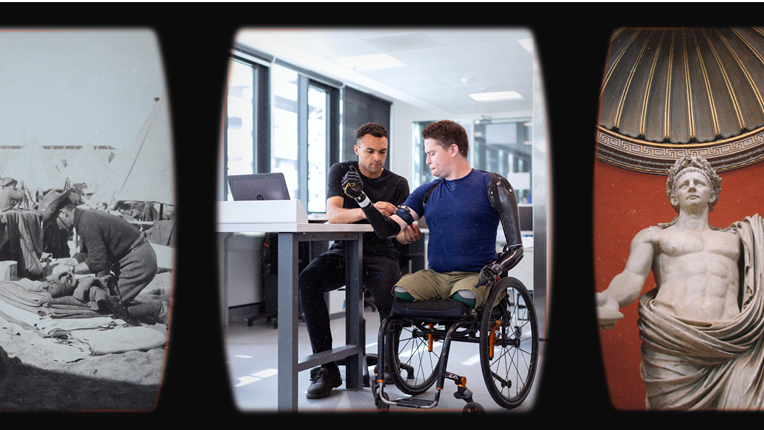A look back on disability history...
I like to consider myself an extremely positive person.
Bad days are few and far between - not non-existent but definitely rare!
On those occasions when my disability does get me down, I can draw strength from history. Looking back can give you a better appreciation of the present and future.
It’s a sad fact that history has been unkind to people with disabilities and there is a record of abuse, discrimination and lack of compassion and understanding of history
For instance, have you ever heard of The 1846 Lunatics Ordinance?
- The 1846 Lunatics Ordinance provided incarceration of the mentally ill, initially in jails. The first public ‘lunatic’ asylum was opened in Karori in 1854, followed by Porirua in 1887. The Porirua asylum mixed several categories of ‘undesirables’: those with mental health issues, intellectual impairment, disabled children, alcoholics, as well as elderly and homeless people. For decades, all these ‘inmates’ also provided large captive communities for doctors and specialists to practice theories and treatments.
If that leaves you shocked, how about the 1882 Imbecile Passengers Act?
- The 1882 Imbecile Passengers Act restricted “cripples, idiots, lunatics, infirm, blind, deaf and dumb”, and the 1899 Immigration Restriction Act banned the “idiotic”, the “insane” and the contagious. Disability was unwelcome as it challenged the idea of a new society, and could be a burden on others at a time when hard physical work was a daily necessity.
Things didn’t get much better with the turn of the century.
- The 1911 Mental Defectives Act classified groups of ‘other’ into six categories: “persons of unsound mind”, ”mentally infirm”, “idiots”, “imbeciles”, “feeble-minded” and “epileptics”. Each label had a specific meaning. The 1914 Education Act required parents, teachers and police to report ‘mentally defective’ children to the Department of Education.
If you turn the clock back even further, you’ll find compassion was a very rare commodity.
While our ancient era is well-known for its contribution to philosophy, literature and medicine, these weren’t the best of times for people with disabilities.
One of our greatest philosophers, Aristotle (384-322 B.C.) recommended that there should be a law “to prevent the rearing of deformed children” In his politics, Aristotle wrote “As to the exposure and rearing of children, let there be a law that no deformed child shall survive.“
The Greek Empire was obsessed with human perfection. They believed beauty and intelligence were intertwined.
Like the Greeks, the Romans considered disabled people of lower quality. There was no Latin word for the term disabled, so the word that was used was `monstrum’ which meant mythical monsters.
In Rome, children with disabilities were treated as an object of scorn. The blind, deaf and intellectually disabled were persecuted and reported to have been thrown in the Tiber River by their parents. In the military city of Sparta, the abandonment of `deformed and sickly’ infants was a legal requirement.
The demise of the Roman Empire and the rise of Christianity led to a time when sympathy and pity were shown towards disabled people. However, in historical terms, it was short-lived and soon replaced by fear.
The Middle Ages (approx 1060-1490) was an era of social oppression, economic hardship and intellectual decline. Those born with disabilities were considered outcasts. Their disabilities were the work of the devil and they needed to be punished for their sins. Inhumane institutions were developed to hide the disabled rather than treat them.
The 1700s heralded the start of the Industrial Revolution. Long hours, dangerous work conditions, no job safety regulations, poor medical facilities, war and bloody battles led to a rise in the number of people with disabilities. Many could not afford to have assistive devices made and were the subjects of public mockery and scorn. For some, disability was a death sentence.
Like I said at the start, sometimes you have to look to the past to appreciate the present. Personally. I feel lucky. If you’re having a bad day, remember this quote …
“Sometimes, bad days are there to remind us that we have good ones to look forward to.”





